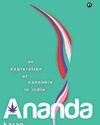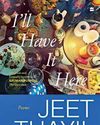
Saul Dreier stands in the wings of the Kennedy Center’s Millennium Stage in Washington, D.C.,
waiting to be introduced. A short, wiry nonagenarian, he’s appearing there with his Holocaust Survivor Band in December 2015, a few days shy of the new year. It’s a prestigious venue for a musical group that, up to that point, had only existed for just over a year. Dreier is excited but not nervous. He has seen too much in his lifetime to be unnerved by a mere performance.
When the band is announced, the crowd greets it enthusiastically. Dreier, 90, and Reuwen ‘Ruby’ Sosnowicz, 88, both Holocaust survivors, take the stage, dressed in matching red shirts, black vests and black trousers. Sosnowicz, the more reserved of the two, goes to his keyboard, barely acknowledging the crowd, while Dreier waves and blows a kiss before taking a seat behind his drum kit. They are joined by younger musicians, including Sosnowicz’s daughter Chana Rose, who sings and plays tambourine. A violinist, a guitar player, a horn player, a backup singer and another keyboard player —some the children of survivors as well—round out the band.
A steady beat, followed by the shimmy of a snare drum, introduces the first song, ‘Shalom Aleichem’ (meaning ‘peace be with you’). An old Yiddish tune, it tells of angels that visit on Shabbat, the Jewish Sabbath. While some sing the song as a lullaby, Dreier and company play it fast and bouncy. They’re a klezmer band, combining traditional Jewish folk songs and the boisterous dance music of Eastern Europe with a heavy dose of improv thrown in. Think Yiddish jazz.
The audience nods along. Many mouth the words or hum the tune. Chances are, most know the song.
In stark contrast to the upbeat tune, haunting black-and-white images from the Holocaust flash on a large screen behind the band: prisoners being marched into the camps, bodies heaped on top of one another, families awaiting their inevitable fate.
Diese Geschichte stammt aus der July 2024-Ausgabe von Reader's Digest India.
Starten Sie Ihre 7-tägige kostenlose Testversion von Magzter GOLD, um auf Tausende kuratierte Premium-Storys sowie über 8.000 Zeitschriften und Zeitungen zuzugreifen.
Bereits Abonnent ? Anmelden
Diese Geschichte stammt aus der July 2024-Ausgabe von Reader's Digest India.
Starten Sie Ihre 7-tägige kostenlose Testversion von Magzter GOLD, um auf Tausende kuratierte Premium-Storys sowie über 8.000 Zeitschriften und Zeitungen zuzugreifen.
Bereits Abonnent? Anmelden

ME & MY SHELF
Siddharth Kapila is a lawyer turned writer whose writing has focussed on issues surrounding Hinduism. His debut book, Tripping Down the Ganga: A Son's Exploration of Faith (Speaking Tiger) traces his seven-year-long journey along India's holiest river and his explorations into the nature of faith among believers and skeptics alike.

EMBEDDED FROM NPR
For all its flaws and shortcomings, some of which have come under the spotlight in recent years, NPR makes some of the best hardcore journalistic podcasts ever.

ANURAG MINUS VERMA PODCAST
Interview podcasts live and die not just on the strengths of the interviewer but also the range of participating guests.

WE'RE NOT KIDDING WITH MEHDI & FRIENDS
Since his exit from MSNBC, star anchor and journalist Mehdi Hasan has gone on to found Zeteo, an all-new media startup focussing on both news and analysis.

Ananda: An Exploration of Cannabis in India by Karan Madhok (Aleph)
Karan Madhok's Ananda is a lively, three-dimensional exploration of India's past and present relationship with cannabis.

I'll Have it Here: Poems by Jeet Thayil, (Fourth Estate)
For over three decades now, Jeet Thayil has been one of India's pre-eminent Englishlanguage poets.

Orbital by Samantha Harvey (Penguin Random House India)
Samantha Harvey became the latest winner of the Booker Prize last month for Orbital, a short, sharp shock of a novel about a group of astronauts aboard the International Space Station for a long-term mission.

She Defied All the Odds
When doctors told the McCoombes that spina bifida would severely limit their daughter's life, they refused to listen. So did the little girl

DO YOU DARE?
Two Danish businesswomen want us to start eating insects. It's good for the environment, but can consumers get over the yuck factor?

Searching for Santa Claus
Santa lives at the North Pole, right? Don't say that to the people of Rovaniemi in northern Finland